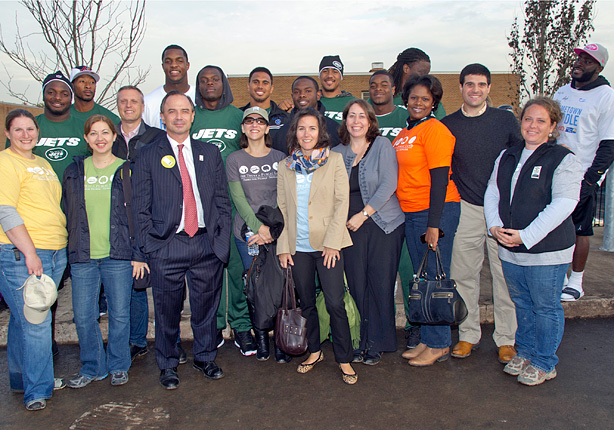
Members of the New York Jets, The Trust for Public Land, the New Jersey National Guard and United Way at an October 2012 "Hometown Huddle" event to install a Trust for Public Land Fitness Zone at Jesse Allen Park in Newark, N.J. Cornellians include Scott Dvorak M.A. '95 (back row, third from left), Mary Alice Lee '95 (front row, right of center, gray sweater), Jessica Ingram-Bellamy '92 (front row, right, orange T-shirt), Anthony Cucchi '93 (right, black sweater, next to Jessica). Also pictured: Adrian Benepe (front row, third from left in red tie), former New York City parks commissioner who is now a senior vice president and director of city park development at the Trust. Photo: Frances M. Roberts/The Trust for Public Land
Cornell experience draws alumni to 'perfect fit' with land conservation group
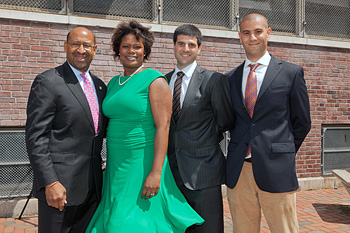
From left, Philadelphia Mayor Michael Nutter with Trust for Public Land leaders Jessica Ingram-Bellamy '92, Anthony Cucchi '93 and Simone Mangili, M.A. '06 at the ribbon cutting and press event for the launch of the Trust's Parks for People-Philadelphia Program in May 2012. Photo: Jack Ramsdale/The Trust for Public Land
When Anthony Cucchi '93 returned to campus after 20 years for Reunion Weekend this past June, he was struck by the many new buildings and other changes to Cornell's campus. But he also noticed the well-planned outdoor spaces that create a natural aesthetic and openness, qualities that he values in his job as The Trust for Public Land's director of New Jersey and Pennsylvania state offices.
He is, in fact, one of nine Cornell graduates in prominent positions at The Trust for Public Land, a nonprofit that is a national leader in conserving land with more than 30 offices around the country.
"Unlike many other conservation organizations, we protect public landscapes, but we do it for the benefit of people, who mostly live in urban areas," Cucchi says, adding that such foci largely overlap with the coursework and urban emphasis taught at Cornell in departments like architecture and urban planning.
In addition to courses on the art of designing and conserving public spaces, many alumni at The Trust for Public Land say that Cornell's lush and gorge-lined Ithaca campus also fostered an appreciation for natural beauty that ultimately led them to work at the Trust.
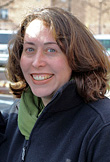
Mary Alice Lee '95
"Cornell is a beautiful campus, even in bad weather, and it taught me how nature can be beautiful 365 days a year," says Mary Alice Lee '95, who directs the organization's playgrounds program in New York City.
Lee had wanted to be an environmental lawyer until she took a city planning class her freshman year. "I didn't realize there was a career to help plan cities," says Lee, who majored in policy analysis and management. "I wanted to create more park space in New York City, and my education at Cornell prepared me for the job I do every day."
At the Trust, Lee partners with the city to design and renovate schoolyards in neighborhoods most in need of recreational space but that have enough undeveloped space to build a new park. The nonprofit helps orchestrate the design and building of new playgrounds with soccer fields, basketball courts, chess and checkers tables, gardens, gazebos, and fitness and play equipment as well as elements for storm water management.
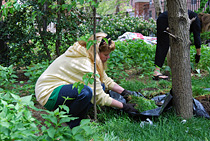
Susie Hanchett '90 plants flowers at the Trust's NYC Playgrounds Program's junior high school 157 urban garden site in Queens. Photo provided by The Trust for Public Land.
Research has found that such spaces impact well-being. A preliminary 2012 report by The Trust for Public Land, the RAND Corp. and the San Francisco Department of Public Health, for example, found that after rebuilding a high-impact park in an underserved San Francisco neighborhood, park users increased sixfold -- from 156 per week to 1,015 per week; the new park design supported more moderate-to-vigorous levels of physical activity; and park users and nearby residents indicated that the park felt safer.
The Trust, which celebrated its 40th anniversary in 2012, also houses the Land and Water Initiative to balance community demands for growth with the need to protect key habitats and water resources and to mitigate climate changes; and the Working Lands Initiative to preserve the environmental benefits of lands that people rely on for sustenance, such as farms, ranches and forests.
"Our mission at The Trust for Public Land is to conserve land for people," says Jessica Ingram-Bellamy '92, the Trust's East Coast associate director of marketing. "For me, that interest was nurtured at Cornell by the beautiful campus with all the green places to roam and connect to nature and the environment."
Ingram-Bellamy also attributes coursework in her major, Africana studies and research, and sociology classes, with helping her develop an ethic for improving the quality of life in urban communities that mirrors the Trust's ethic.
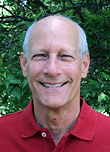
John Horwich, J.D. '75, now transaction director for The Trust for Public Land's Atlantic Seaboard Division
"At Cornell, I learned about how the lives of people in urban communities, especially people of color, can be improved with social and economic investments," she says. "I learned about giving these marginalized communities a voice."
The Trust has protected more than 3 million acres in urban and wilderness locales, affecting the lives of more than 10 million people by establishing public parks within a 10-minute walk of their homes. The organization also has raised more than $34 billion in public funds for conservation.
This year, four alumni in the Trust's Parks for People initiative -- Lee, Cucchi, Simone Mangili, M.A. '06, and Scott Dvorak, M.A. '95, representing the organization's New York City, Newark and Philadelphia offices -- will together reach a milestone of rebuilding 100 playgrounds with "green" infrastructure design features.
"Cornell creates citizens of the world, hard workers who are adept about problem solving and who are engaged with the environment," Lee says.
Cornell alumni at The Trust for Public Land include:
- Anthony Cucchi '93 (history, College of Arts and Sciences), director of the New Jersey and Pennsylvania state offices;
- Mary Alice Lee '95 (policy analysis and management, College of Human Ecology), New York City playgrounds program director;
- Jessica Ingram-Bellamy '92 (Africana studies and research, Arts and Sciences), East Coast associate director of marketing;
- Susie Hanchett '90 (American studies/African-American studies, Arts and Sciences), donor relations manager;
- Peggy Chiu '92 (agricultural economics, College of Agriculture and Life Sciences), national programs counsel;
- Katie Martin '07 (human development and biology, Human Ecology), major gifts officer;
- Scott Dvorak M.A. '95 (regional planning, College of Architecture, Art and Planning), program director, Parks for People -- Newark;
- Simone Mangili, M.A. '06 (regional planning, Architecture, Art and Planning), program director, Parks for People -- Philadelphia; and
- John Horwich, J.D. '75 (Law School), Atlantic Seaboard Division transaction director.
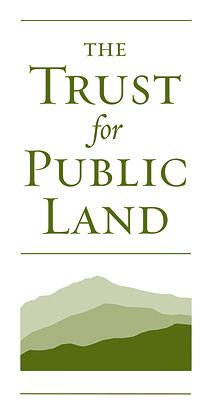
Related links: